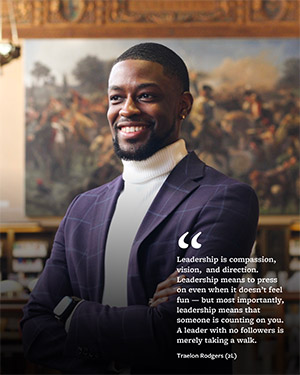Berkeley Law’s student body is a community of young professionals whose passions and talents help make this an incredibly vibrant place to learn the practice, purpose, and power of law for the public good. This page is a glimpse at some of our amazing students in their own words and through submissions from members of our community.
Amid Rising Climate Litigation, Award-Winning Professor Spotlights ESG Strategies at Annual Berkeley International Law Symposium
The Berkeley Journal of International Law (BJIL), edited and produced by Berkeley Law students, publishes biannual issues on a broad range of scholarship that spans public international, private international, and comparative law disciplines. This year the journal was led by Co-Editors in Chief Cassidy Alford Veidelis ’24 and Paloma Palmer ‘24.
In addition to publication, BJIL organizes the annual Stefan A. Riesenfeld Symposium, through which leading scholars and practitioners assemble to address pressing international legal issues. The topic this year was “ESG & International Law.”
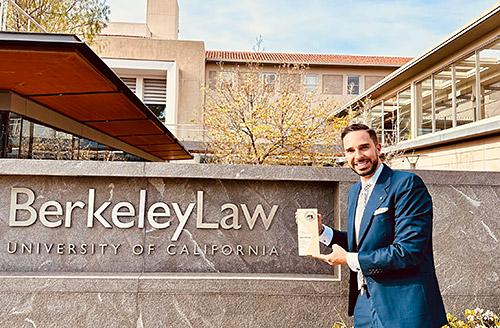
University College School of Management Professor Paolo Taticchi received the journal’s prestigious Stefan A. Riesenfeld Memorial Award at the symposium, recognizing his impactful work and significant contributions to sustainable business practices. During the award ceremony, Taticchi delivered a compelling keynote address.
His speech illuminated the increasingly crucial role of environmental, social, and governance (ESG) factors in today’s business environment, especially against the backdrop of escalating climate litigation. As businesses encounter growing legal responsibilities and public expectations, Taticchi emphasized the importance of enhancing ESG frameworks not only to comply with legal standards but also to implement effective sustainable business practices.
The symposium focused on the dynamic landscape of international ESG policies and regulations. Discussions explored sustainable financing and investments, the intersection of ESG regulations in investor-state disputes, and the necessity for corporate transparency and sustainability.
“ESG considerations are no longer peripheral elements within business strategies; they are central to managing risks and leveraging opportunities in the modern economy,” Taticchi explained.
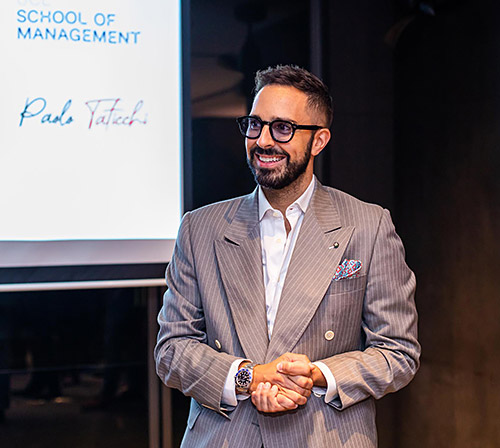
His remarks highlighted significant recent developments in climate litigation, notably a landmark decision by the European Court of Human Rights that Switzerland’s inaction on climate change constituted a violation of human rights — setting a precedent that underscores the legal stakes associated with environmental neglect.
Taticchi’s recognition at the symposium underlines the importance of interdisciplinary contributions in addressing the challenges facing today’s global community.
“I am deeply honored to receive the Stefan A. Riesenfeld Memorial Award,” he said. “It’s a recognition that resonates profoundly with my commitment to fostering sustainable business practices and contributing to global social and economic change.”
His insights into the transformative potential of robust ESG practices resonated with the audience, which included leading practitioners and influential academics eager to understand and discuss the evolving regulatory frameworks governing global businesses.
“Increasing ESG awareness is not just about risk mitigation,” Taticchi noted during his address. “It’s about creating a sustainable business model that aligns with the broader objectives of global welfare and environmental sustainability.”
The symposium served as a critical platform for exchanging ideas and strategies on how to integrate these practices more deeply across sectors. As companies worldwide adjust to these realities, Taticchi’s insights highlighted the growing interconnection between legal obligations, corporate responsibility, and sustainable development.
Sewit Beraki ’24
Brains of Berkeley Law: Voices of Students, Staff & Faculty that Make Berkeley Law
By Cheska Torres Ibasan
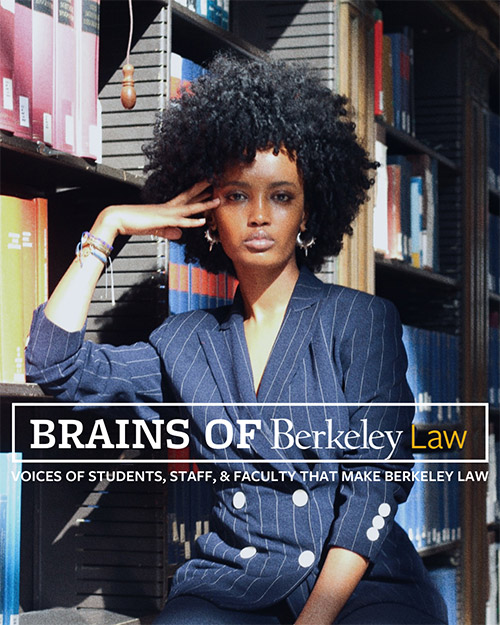
“I want everyone to have access to spaces, to imagination, to community, to education, to peace, to joy, to safety, and to love. At my core, I want to empower people to use their own agency by dismantling the obstacles in their way,” shares Co-President of the Student Association of Berkeley Law (SABL) Sewit Beraki (2L).
A participant of the Negotiation and Mediation Trial Team, the Berkeley Immigration Group, the Berkeley Law Policy Advocacy Clinic, Berkeley LSAD, Berkeley Women of Color Coalition, and a Student Representative at the Berkeley Law Alumni Association — Beraki’s leadership is one of the many legacies that Berkeley Law thrives upon.
Brains of Berkeley Law: Kendrick Peterson JD/MPP ’24
By Cheska Torres Ibasan
 “Though I had an overall stellar experience and an unmatched degree of professional development, my ability to achieve in many spaces was impeded by the lack of concern for my identity by many institutions,” shares Juris Doctor and Master’s in Public Policy Candidate Kendrick Peterson. Growing up in predominantly white spaces, Kendrick was made aware of his identities as a queer and Black scholar at a very young age. In his 2018 TEDx talk — Kendrick, who was working as an Undergraduate Admissions Coordinator at the University of Notre Dame at the time — tackled how institutionalism propels the importance of celebrating diversity in all forms.
“Though I had an overall stellar experience and an unmatched degree of professional development, my ability to achieve in many spaces was impeded by the lack of concern for my identity by many institutions,” shares Juris Doctor and Master’s in Public Policy Candidate Kendrick Peterson. Growing up in predominantly white spaces, Kendrick was made aware of his identities as a queer and Black scholar at a very young age. In his 2018 TEDx talk — Kendrick, who was working as an Undergraduate Admissions Coordinator at the University of Notre Dame at the time — tackled how institutionalism propels the importance of celebrating diversity in all forms.

Committed to decolonizing the legal system, Kendrick’s pro bono endeavors are highlighted through his involvement with the Policy Advocacy Clinic, East Bay Community Law Center, and BLAST: Domestic Violence Prevention. He is also an alumnus of Harvard PPLC and Carnegie Mellon PPIA fellowship programs.
“After watching Legally Blonde, I thought that I could be like Elle Woods. A thriving, wealthy socialite with monochrome outfits, acing the LSAT and getting into a prestigious law school. It became quite apparent early on that I could never be like Elle Woods. I did not have the background, knowledge, or testing materials, and statistically I was told that I was lucky to make it out of high school,” Kendrick recalls.
 “During my time at the University of Notre Dame, I was often asked what sports team I played on to be admitted, served as the only Black student in my lectures and in one instance had a Physics professor threaten to call campus security because I seemed threatening. However, the close friendships and community I developed then, inspire me to lean unabashadley into my authenticity today.”
“During my time at the University of Notre Dame, I was often asked what sports team I played on to be admitted, served as the only Black student in my lectures and in one instance had a Physics professor threaten to call campus security because I seemed threatening. However, the close friendships and community I developed then, inspire me to lean unabashadley into my authenticity today.”
Kendrick serves as the Berkeley Law Student Body Co-President, the Associate Editor of California Law Review, a BLAST Trip Leader, member of Berkeley Law Queer Caucus, Law Students of African Descent, the Mock Trial Team, and is a mentee for the Appellate Project. 
In his commercial practice, he hopes to focus on opportunities affiliated with private sector litigation, white collar investigations, higher education regulatory practice, and impact federal advocacy on behalf of marginalized groups.
“We cannot continue to operate as if victories on behalf of vulnerable communities are set in stone.”
Among the numerous things we learned from Kendrick’s years of excellence, one always stands evident: Community advocacy operates through the light of love. Without love, there can be no justice. And without justice, there is no love.
Brains of Berkeley Law: Traelon Rodgers ’24
By Cheska Torres Ibasan
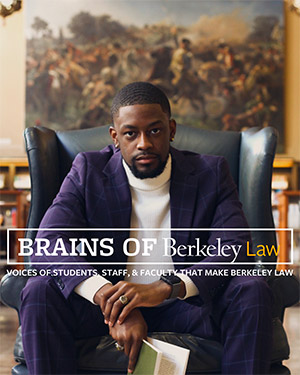 Civil Rights Scholar Traelon Rodgers ’24 graduated valedictorian with a B.S. in Urban Studies and Public Policy from Dillard University where he also participated in its nationally ranked mock trial team and served as a two-term Student Government Association President.
Civil Rights Scholar Traelon Rodgers ’24 graduated valedictorian with a B.S. in Urban Studies and Public Policy from Dillard University where he also participated in its nationally ranked mock trial team and served as a two-term Student Government Association President.
A native of Arlington, Texas and an alumnus of Judge Barefoot Sanders Law Magnet at Townview — Rodgers continued his commitment to public service by serving as a National Board Member for the National Association for the Advancement of Colored People (NAACP) and was later elected as the youngest National Assistant Secretary of the Board at just the age of 21.
Rodgers is also a proud member of Kappa Alpha Psi Fraternity, Inc. — a Divine Nine service fraternity. He was initiated into the Beta Gamma Chapter of Kappa Alpha Psi Fraternity, Inc. in 2019 and is a Kappa Fellow. He served as the chairman of intake and was recognized as the Undergraduate Brother with the Highest GPA.
Among Rodgers’ numerous accomplishments, he also received the Torchbearer Award, the NAACP NYWC Chairmans Award for creating task forces that addressed social justice issues that impacted youth members in the NAACP nationwide, the City of Dallas Appreciation for Dedication and service to the community, the Texas NAACP State Conference Torch Bearers Award, and the Rice University Best Attorney Award.
 “Leadership is compassion, vision, and direction. Leadership means to press on even when it doesn’t feel fun — but most importantly, leadership means that someone is counting on you. A leader with no followers is merely taking a walk,” shares Rodgers.
“Leadership is compassion, vision, and direction. Leadership means to press on even when it doesn’t feel fun — but most importantly, leadership means that someone is counting on you. A leader with no followers is merely taking a walk,” shares Rodgers.
Most recently, Rodgers was selected to attend the Society of American Law Teachers (SALT) conference at Loyola Chicago where he spoke on a panel “Teaching and Learning Constitutional Law in Difficult Times: Reorganizing and Resistance” along with UC Berkeley School of Law Dean Erwin Chemerinsky, Loyola Chicago Law Dean Michele Alexandre, and Berkeley Law Professor Kristen Holmquist.
Rodgers is continuing his commitment to social justice at Berkeley Law by working alongside Professor John A. Powell as a Research Assistant at the Othering & Belonging Institute — a research hub for policy and public engagement that brings together diverse stakeholders, researchers, community leaders, policymakers, artists, and communicators to identify and challenge the barriers to an inclusive, just, and sustainable society in order to create transformative change.
A notable Civil Rights Scholar, Traelon Rodgers was selected to the NAACP Legal Defense Fund’s Marshall-Motley Scholars Program, which gives full law school scholarships, training, and post-graduate fellowships to students committed to working for at least eight years oncivil rights in the South after earning their J.D. The 10 recipients — each born or raised in the South — were picked from more than 400 applicants.
Kaylene Khosla ’22
Hometown: Pueblo, Colorado
Education: University of Denver (BA), University of Colorado, Boulder (1L)
Affiliations: International Human Rights Law Clinic, Berkeley Journal of International Law, Moot Court, Women of Color Collective, Women of Berkeley Law
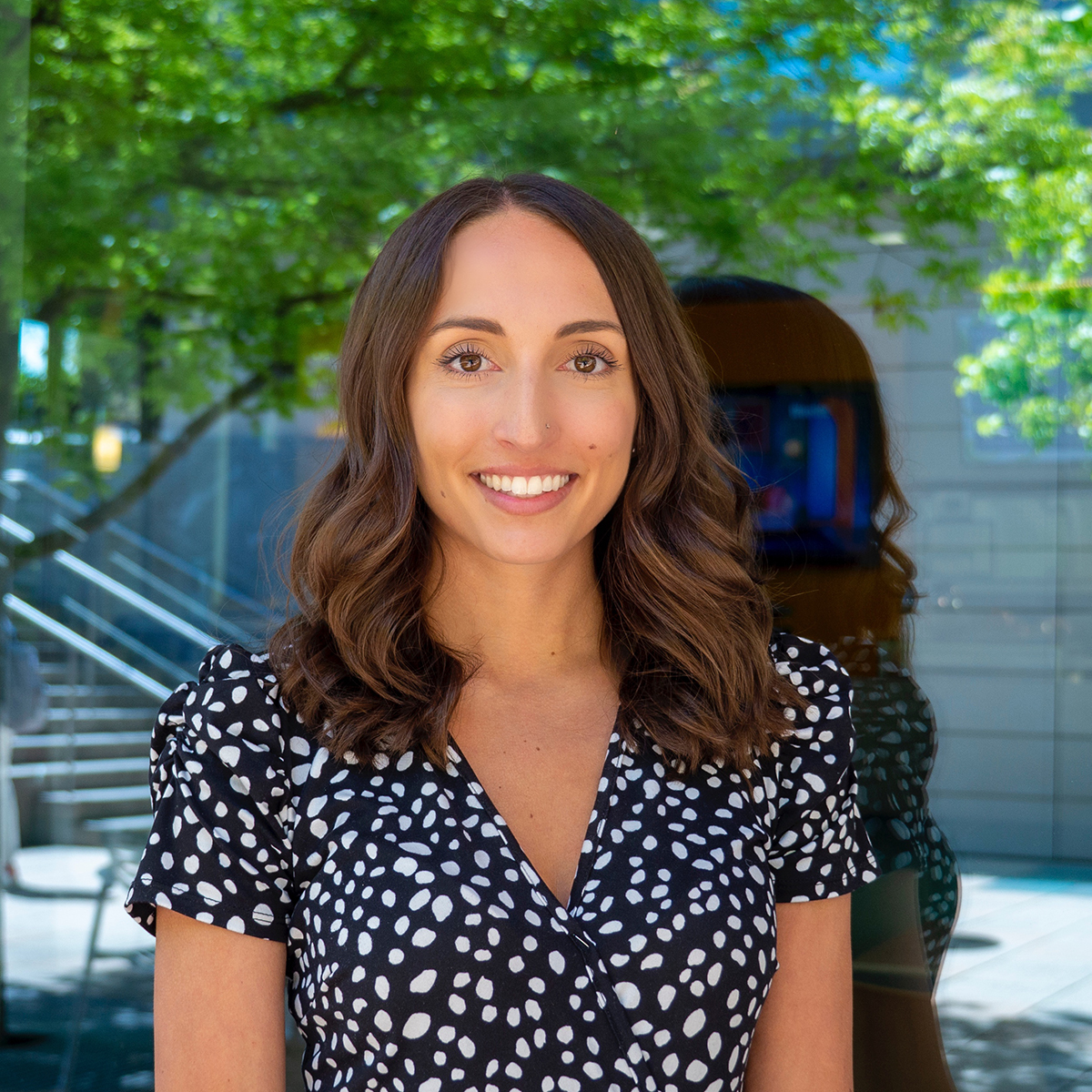 I was on a full-ride, four-year, in-state scholarship sponsored by the Boettcher Foundation which I used at the University of Denver. But I ended up graduating early, so I spent that last year of my scholarship at University of Colorado Law School in Boulder. I have a particular interest in pursuing a career in international law, beginning in international arbitration and eventually doing international human rights work.. And as much as I loved my first year at Colorado, international law really requires being based in a major hub city.
I was on a full-ride, four-year, in-state scholarship sponsored by the Boettcher Foundation which I used at the University of Denver. But I ended up graduating early, so I spent that last year of my scholarship at University of Colorado Law School in Boulder. I have a particular interest in pursuing a career in international law, beginning in international arbitration and eventually doing international human rights work.. And as much as I loved my first year at Colorado, international law really requires being based in a major hub city.
I decided to apply to transfer to a larger law school in the spring of my 1L year, just as the pandemic shut down the world. I knew I wanted to try a large city, and I was lined up to do my first summer in New York, so it really came down to the Bay Area or LA. Berkeley Law is well known for its programming in international law, including the International Human Rights Law Clinic and the Berkeley Journal of International Law, plus the notable faculty and large alumni network. Also, I really liked the environment at Berkeley. The people are very high level, but also laid back and very supportive of each other and have lives outside of law school.
One thing that really stood out to me is that Berkeley Law was the only school I applied to that doesn’t require an application fee for transfers, which is awesome. It also has an organization dedicated to supporting transfers, Transfers at Berkeley Law. Our first few weeks they had an open house on Zoom and we all got to ask questions and get to know one-another. So we all kind of felt like our own “mod,” like they have for 1Ls. We had that instant community. I think that’s really indicative of what Berkeley is like and the support you get here.
It’s been a bit of a whirlwind since starting 2L year. One thing I have discovered is that Berkeley Law wants you to do what you want to do and helps you chart that path, whatever it is. And so I feel like I’ve gotten a little bit of every single experience you can have at law school since transferring.
Basically as soon as I was admitted I started looking through the courses and there was so much I wanted to do. Someone had advised me that if you potentially want to do a clerkship down the road, you should do a semester field-placement as a judicial intern. So I reached out to Berkeley Law’s Field Placement Director Sue Schechter and she immediately gave me a to-do list and started reaching out to her contacts at the Colorado Supreme Court and that was it. My first semester, I took a half course load and worked part time with Chief Justice Brian Boatright and his clerks.
I also auditioned right away for the Moot Court team, and I was thrilled to make the Jessup International Moot Court Competition team. That was a wonderful experience. Even though we had to do the entire season over Zoom, I still got really close to my teammates. We competed in the regional competition and qualified for the global rounds. It was an amazing opportunity to compete against teams from the Netherlands, China, Brazil, Germany, and more. Seeing their different expertise and how they handle these international problems was a unique learning opportunity about how the different countries approach international law that will definitely serve me well in the future.
Berkeley Law makes it easy to work in some sort of experiential capacity every semester, so I’ve taken advantage of those opportunities and they have really influenced my legal progression. I also did the International Human Rights Law Clinic, where I focused on promoting international human rights in the United States criminal justice system. I’m also the outgoing senior online editor for the Berkeley Journal of International Law, where I supervise the journal’s blog and podcast.
To anyone considering transferring to Berkeley Law, I would say it really comes down to professional goals and life happiness. If you have a specific area of law you want to practice, you have to consider whether the offerings and resources of your law school are going to get you there. Berkeley has top-ranked programs and an incredible alumni network that can help launch you into a career in basically any city in the world. But also, the environment and the people here are just wonderful. One of my favorite things is just how engaged the student body of the law school and the greater Berkeley community is. It’s just really eye-opening and cool to be in an environment where people care so deeply about so many things. I’m feeling sentimental that my time is almost over here and I only had one real year on campus, but it’s been a life changing experience.
Matheus Drummond ’22
LL.M. Class of 2022
Rio de Janeiro, Brazil
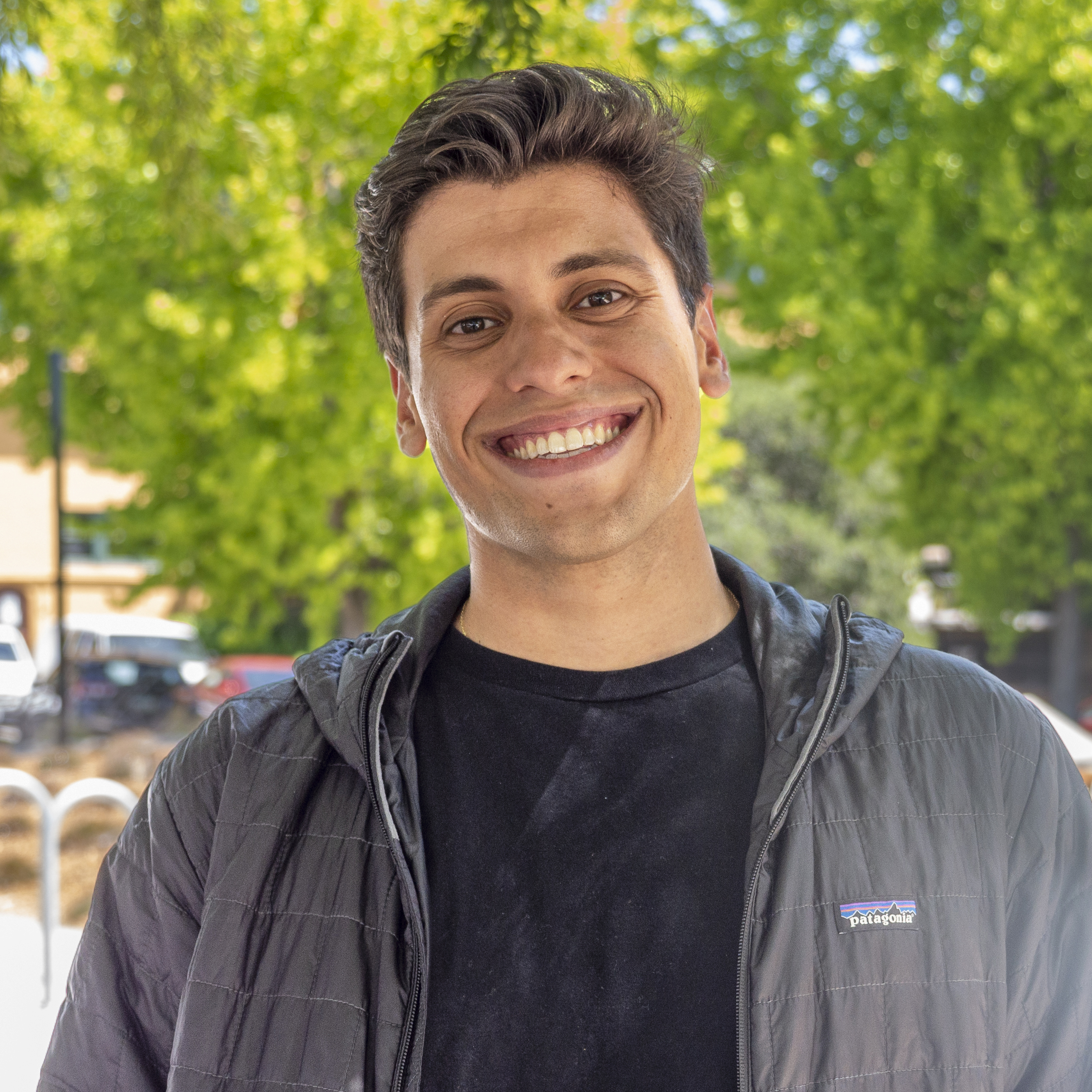 Matheus Drummond (LL.M. ’22) will participate in the Spring 2022 Sutardja Center for Entrepreneurship & Technology Collider Cup, an all-star showcase of student teams pitching their startup idea to panels of professors, investors, and industry experts for the opportunity to win funding of their startup/student venture.
Matheus Drummond (LL.M. ’22) will participate in the Spring 2022 Sutardja Center for Entrepreneurship & Technology Collider Cup, an all-star showcase of student teams pitching their startup idea to panels of professors, investors, and industry experts for the opportunity to win funding of their startup/student venture.
As a teenager, I was planning to go to med school, but then I saw “A Time to Kill.” In that movie, Matthew McConaughey says something like, “with law you have a chance to save the world one case at a time.” And that really stuck with me. So I applied to law school with the mindset of trying to solve real world problems.
During law school I realized how low-tech and underserved the judiciary was. Brazil has the largest case backlog in the world; We have over 77 million cases pending, with an average duration of 4-6 years. A lot of people end up suffering because the proceedings take so long, and ultimately, people just lose faith in the justice system. This is also terrible for a democracy. So I said, okay, maybe I don’t just want to change the world one case at a time. Maybe I want to change it 1 million cases at a time, maybe I want to address the systemic issues, maybe even change the system.
I ended up working in litigation and arbitration at a top Latin American law firm for a few years. But I wanted to bring more of the reasons that made me want to become a lawyer into my practice. I met with the firm’s technology team, and the work they were doing resonated with me—thinking about how AI should be regulated and advising companies on privacy and cybersecurity issues. Around that same time, COVID hit, and suddenly the legal field was racing to embrace technology and modernize. Courts were holding proceedings online and urging for reforms. So it felt like the right time to shift my career in a more structured way.
I approached the LL.M. program with a very specific focus in mind: I wanted not just to learn technology law, but also learn how technology can be applied to legal practice. For example, how can software improve legal services and tackle bureaucracy to decrease barriers to entry so more people can materialize their fundamental rights? These were some of the questions I wanted to answer.
I chose Berkeley, first because of the top technology law faculty. But also because of the other top-ranked schools here, like Engineering, Haas, and the School of Information. I love the students in my cohort and Berkeley Law’s faculty are brilliant and incredibly kind. But even so, I felt that I needed to find other resources to bridge the growing chasm between what’s being discussed in law school and what’s happening in real life.
I was accepted to a guided resource and education program in machine learning at the School of Engineering and took a Cybersecurity course with Professor Chris Hoofnagle, where I had the opportunity to meet and learn with students from some of the other schools. They all were discussing applications of groundbreaking technology developed at Berkeley and presenting businesses with a very clear and logical path to make structural changes in the world I knew right away that’s what I had been looking for. So I talked to the ADP advisors and was able to load my spring coursework with classes from the Engineering and School of Information curriculum. I also shared my desire to bring more of this to the law school with my classmates Josh Lee, Suriti Chowdhary, Akhil Akhil Bhardwaj, and Anuja Shah (all LL.M ’22) and, together, we decided to found B-LIT – Legal Innovation and Technology @ Berkeley, an association that has become affiliated with the Berkeley Center of Law & Technology.
Around that time, I saw a poster for the fall Collider Cup and I knew I wanted to get involved. I approached all of the faculty that were participating after the event and said, ‘I’m a lawyer, I have no background, but I wanna learn. How do I join?’ They let me apply and I got into all the courses I was interested in. My Product Management class at the Sutardja Center of Entrepreneurship & Technology is the one that led to the venture my team is pitching at Collider Cup. We are working on an NFT ticketing platform to provide a safe, legitimate secondary market for concert and sports tickets to prevent scalping and scams with fake tickets. Besides myself, our team is made up of one master of software engineering, one master of industrial engineering, a master in design, plus two undergrads, one electrical engineering major and one from computer science.
It’s been a fun project to work on and I’m excited to be part of the Collider Cup competition, especially as the only law student. But I’m even more excited about a startup idea of my own that I had the opportunity to start in another class (Berkeley Method of Entrepreneurship). In Latin America, when someone dies it’s typically very difficult for families to navigate the overwhelming bureaucracy surrounding post-death logistics and to transfer wealth; so few people have access to estate planning ahead of time. Families are still dealing with loss the same way they did 80-100 years ago. In talking to some of my classmates, it seemed like a problem we could maybe solve through technology and law. So we pitched the idea to our class and ended up winning the best project award from among 23 other startup concepts. That’s when it clicked that maybe this idea could be the way I leverage technology and law to try to achieve my goal of solving millions of cases and helping tackle a real world problem that affects people in my home country of Brazil and across Latin America. After graduation I will officially become an entrepreneur and will be trying to make this startup a reality. Wish me luck!
It has been a crazy year. In terms of networking and learning how lawyers can be an integral part of a business venture, I think I’ve learned 10 years in one. I’m surprised more law students don’t take classes through these other amazing schools at UC Berkeley or get dual degrees. It’s a once in a lifetime opportunity to take advantage of the best this institution has to offer. And for me, it has been transformative.
Matthew Sardo ’23
Major, U.S. Army, Special Forces
Education: Virginia Tech (B.A. Geography); George Mason, School of Public Policy (M.S. Peace Operations)
Affiliations: Co-founder, Legal Obstacles Veterans Encounter (student-led pro bono project); Assistant Professor of Military Science, U.C. Berkeley Army ROTC (Army Reserves); Editorial Board, Irregular Warfare Initiative (Joint venture between the Modern War Institute at West Point and the Empirical Studies of Conflict Project at Princeton University)
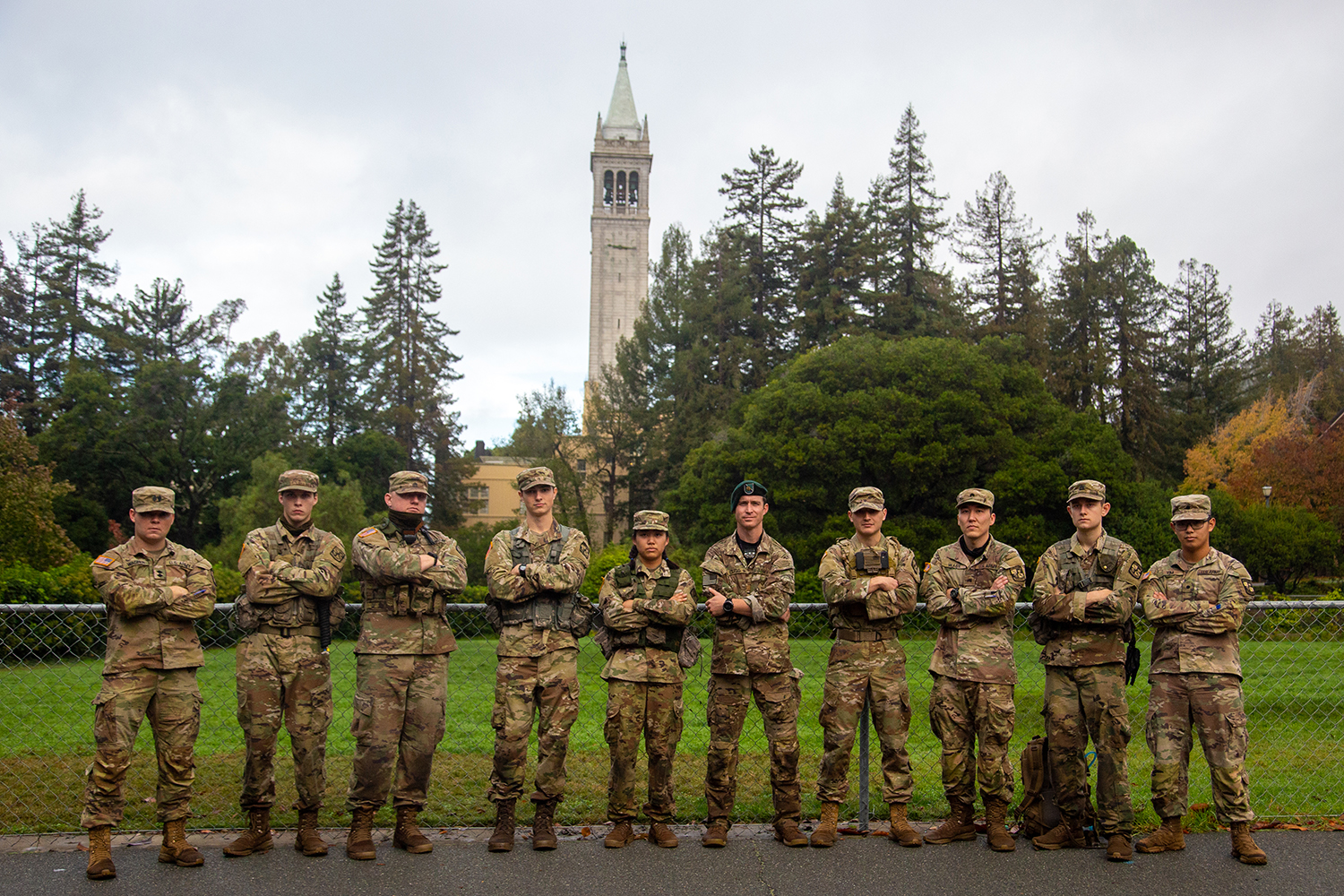
I graduated from Virginia Tech in 2007, weeks after a mass shooting took 32 classmates from our community. I was planning to return home to D.C. or teach locally after undergrad. The senselessness of the incident and insecurity it bred in my community motivated me to alter my path and enter service. I enlisted in the Army that July. By September, I was enrolled in Fort Benning, Georgia’s Infantry School.
In the process of seeking the best route to enter service, I found an opportunity to pair Army ROTC with a graduate program at George Mason University (GMU) called Peace Operations. The Peace Ops curriculum focused on counterinsurgency, stability operations, conflict resolution—very much aligned with what I thought might add value to my career choice. The class was a mix of military officers, diplomats, and aid workers, with a faculty including GEN(R) Mike Hayden and Dr. Janine Davidson. The shared career experiences from this dynamic group were formative for me as a new soldier straight out of Sand Hill.
While at GMU, I was a cadet and served in the Virginia National Guard. I was fortunate to attend a few additional training opportunities like Airborne School, which teaches a group of paratroopers to jump out of an aircraft together at about 1,200 feet; Air Assault School, where we rappelled from helicopters; and Vermont’s Mountain Warfare School where we learned to survive in the mountains, ice climb, and tie knots. All of these skills came in handy this semester when I had the opportunity to rappel from the Campanile with friends from the Berkeley Fire Department.
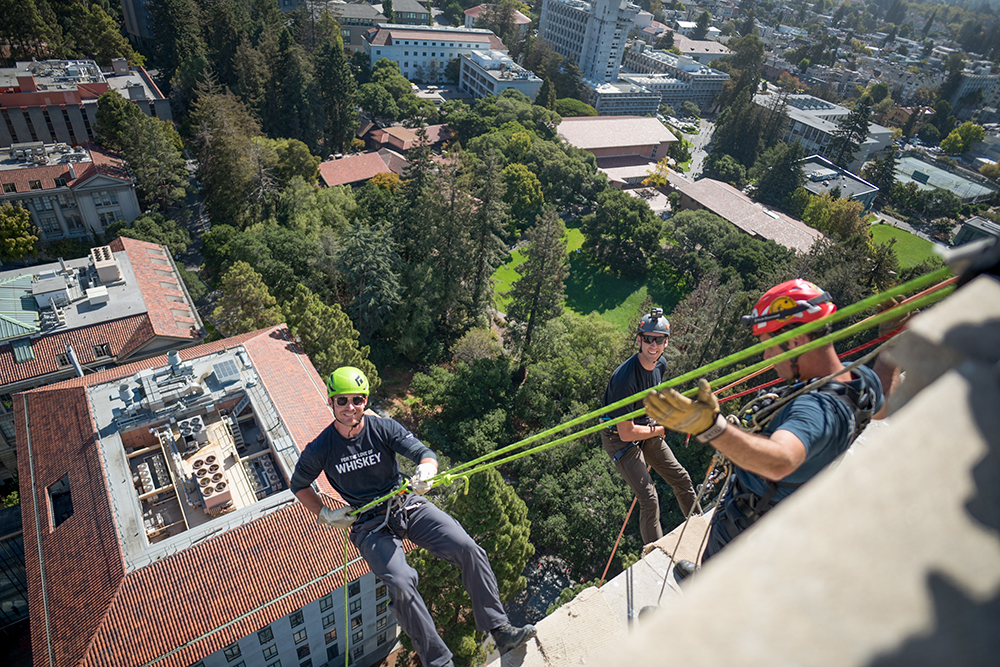
In addition to the classroom and training curriculum, I was able to compete on GMU’s Ranger Challenge team against regional ROTC programs in skills like navigation and team problem solving. We won our regional competition and the team went on to West Point’s Sandhurst Competition. Twelve years later, I coach the Berkeley ROTC Ranger Challenge team. Training a group of talented young cadets how to work as a team has been a great mental health reprieve from the rigors of law school. The future officers I mentor are smarter than I was at that age. They are Bears, and they don’t shy from physical adversity.
After GMU, I commissioned into the Infantry and went back to Georgia for the Officer Course and Ranger School. By April 2011, I was a platoon leader in Afghanistan with 3-71 CAV from the 10th Mountain Division for a 12-month trip. We were assigned to a tennis court sized outpost in a pomegranate orchard along the Arghandab River. Before we arrived, the 101st Airborne fought with the Afghan National Army (ANA) for every inch of the valley. In that fight, the Taliban embedded IEDs in each home to defend the terrain and most homes were destroyed. Our mission was to live within the village, provide security, and manage the reconstruction. We built trust with the agricultural community as their economy recovered and, despite dealing with an active IED cell, there was only one direct fire incident in the six months we patrolled the orchards. Since the Taliban were quiet, we left the area.
Our platoon was relocated to a larger base in western Kandahar Province. Our job from there was local security in a new village and support to brigade clearance operations across the district. The Taliban were active, and we faced resistance whenever we were in an area the locals and Taliban knew we would not stay. The local population justly assessed it was a better short and long-term bet to cooperate with Taliban intimidation than to be honest with our sporadic counter-opium patrols. We were inserted by truck or helicopter into a remote area, we would patrol until we made contact, then fight our way through. This approach was not sustainable back in 2011, and men and women from my platoon were lost.
It was clear at my early stage of direct involvement that the goal of a stable Afghanistan required a commitment by more than just the NATO militaries. The military carried the burden of counterinsurgency, which involved training a reliable army, building a legitimate economy, and balancing corruption with legitimate governance functions. By 2016 or so, as the military presence was reduced to special operations forces, the other tools of US foreign policy were further sidelined. The military presence was enough to keep a finger in the dam that held back Taliban control for a few years, yet the rapid collapse of the Afghan government this summer made clear the fragility of NATO investments over two decades. The less than whole-of-government contributions to Afghan stability restricted American ingenuity and sapped domestic political will to sustain the limited special operations footprint that existed into 2021.
It’s hard to convince someone from a different background that it’s worth it to trust the American military right now. The military mission failed and the Afghan people suffered, but I would argue that American support to Afghans is not over. Those Americans that contributed, gave a large population of Afghani young people an opportunity to see what could be. They went to school, they had jobs and livelihoods, they had hope. Right now, we’re seeing terrible stories of the Taliban’s repressive tactics, yet we can be inspired by the evacuation assistance driven by the personal relationships built between Americans and Afghans.
When Kabul fell, former colleagues from the Army along with members of the diplomatic and press corps who served in Afghanistan organized heroic privately funded rescue efforts to extract as many Afghans as possible. A lot of Americans, those that went back in uniform and many in their private capacity, dedicated themselves to help get families out. A squad of Marines and a member of Army Special Forces Command gave their lives assisting the evacuation. These individual sacrifices gave Afghan families that landed at American airports opportunity. This collaboration gives me tremendous pride in Americans who do the right thing for a partner. I believe the evacuation continues to be a testament to everything that is right about the character of America’s citizens and public servants.
Seeing Berkeley Law do so much to help Afghans evacuate [see here, here, and here] gave me a deep sense of pride in my choice to be a part of this community. I told buddies back at Bragg about the Law School efforts to bring Afghan lawyers and scholars to safety, and to investigate and document human rights abuses by the Taliban. Special operators recognized the shared mission with the Berkeley community. It’s disappointing that in today’s domestic climate that more conservative places like Bragg and liberal places like Berkeley look at each other as if one is less American. President Kennedy saw the essential nature of both the University of California and the Army Green Berets to protect American values during a period as troubled as our current environment. In the case of the Afghan evacuation, the core values and innovative natures of two of my communities overlapped to contribute positively to a shared cause, and that pride is immeasurable.
Following my time in the Infantry, I trained at Fort Bragg, North Carolina’s JFK School of Special Warfare. The Special Forces Officer curriculum traces its roots to World War II’s Office of Strategic Services, and teaches small unit support to indigenous partners to achieve shared goals. I deployed twice to northwest Africa in command of an Operational Detachment-Alpha and later supported operations across Africa, Syria, North Korea, and Afghanistan. While deployed to Niger in 2017, my Detachment had the unfortunate responsibility of recovering the bodies of four Green Berets killed while fighting through an ambush. The investigations that followed placed blame on my friends for being cowboys. This internal assessment was untrue and ignored their integrity. Watching the organization tarnish the honor of my friends and ignore their valor, while the families of the fallen were lied to, led me to step away from active service.
In May of 2020, just as the pandemic was impacting nationally, my wife and I packed up our toddler, two dogs and two cats, and we camped for the 11 days from Bragg to Berkeley thinking we could avoid the social health situation. It was a wild trip and I do not recommend a road trip with cats. When we finally came out of the Caldecott Tunnel to see the Golden Gate Bridge right there in front of us I immediately forgot about the longest convoy of my life. Seeing that symbol of America after an exhausting journey will be a lifetime memory.
Helping men and women of the American veteran community is a priority for my legal career. Last summer I worked in the Swords to Plowshares legal unit. The opportunity to learn from their experienced attorneys, and to gain exposure to the issues faced by our Bay Area veterans, developed a broad awareness of how to be effective in veterans law. This year, I was fortunate to work with fellow veteran classmates Tyler Baylis ’22 and Blaine Manire ’23 to launch Legal Obstacles Veterans Encounter (L.O.V.E.), a new student-led pro bono project (read more about the project here and contribute here to the Pro Bono Fund, which supports L.O.V.E. and other opportunities for students to engage in pro bono work). I also do direct client work with the Veterans Law Practicum supervised by Professors Olivia Cole and Rose Carmen Goldberg. The process for a deserving veteran to secure earned benefits should be simple, but since it is artificially difficult, it requires an advocate. As I transition careers, the opportunity to fight for veterans while a student is professionally fulfilling. The course of my legal career is uncertain, but Berkeley Law is providing the skills and relentless attitude necessary to become an effective advocate.
The views expressed are those of the author and do not reflect the official position of the United States Department of the Army or Department of Defense.
Marlenee Blas Pedral ’23
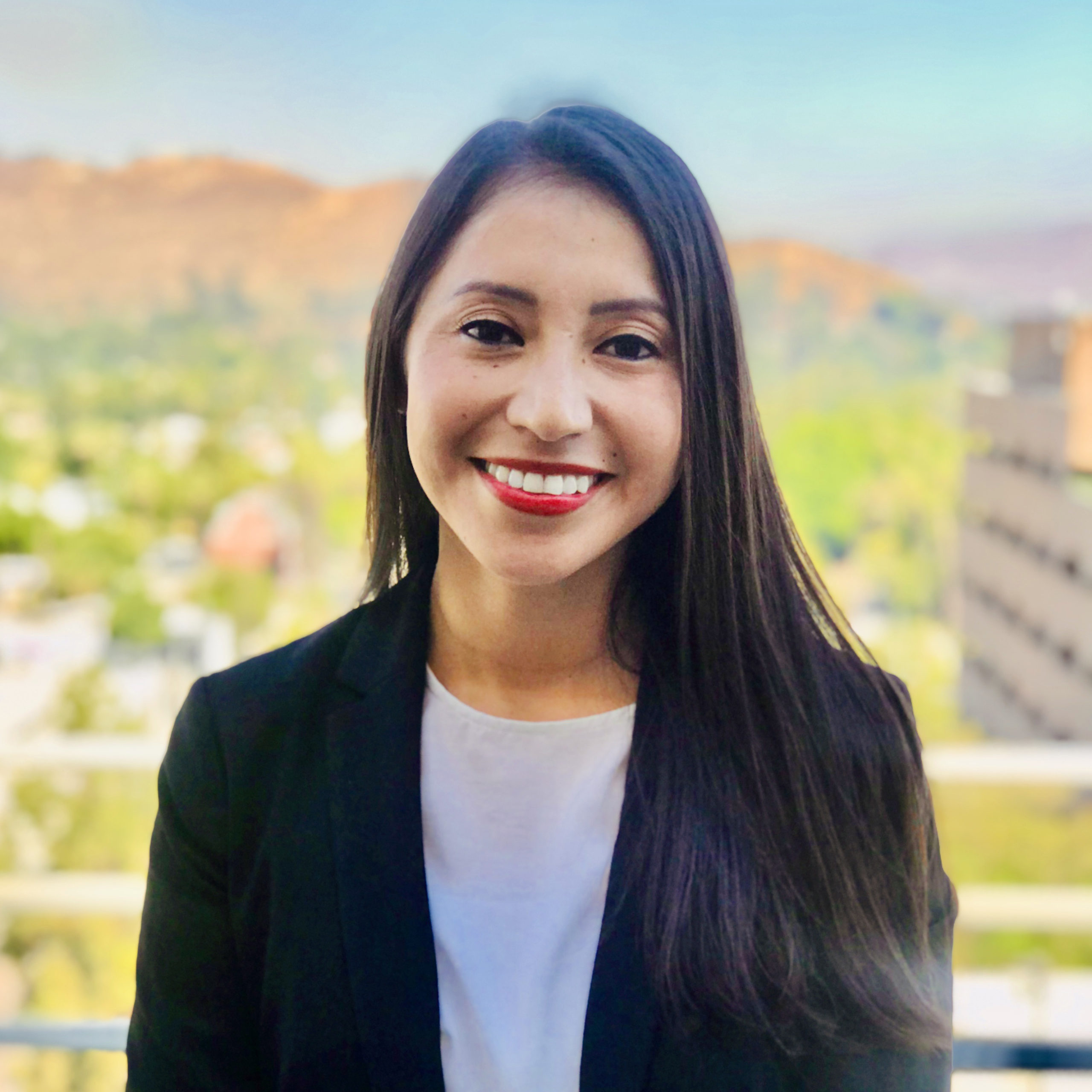 Hometown: Temecula, CA
Hometown: Temecula, CA
Education: UC Santa Barbara B.A.; University of Vermont M.Ed.
Affiliations: UC Student Regent Designate, California Law Review Vol. 111
I was born in Mexico and moved to southern California when I was in second grade. The lack of Latinas in higher education and in the broader legal profession influenced my desire to become a lawyer. I chose to attend UC Berkeley because I’ve been in public schools all my life and believe that, as a leading public law school, Berkeley Law and its students and graduates can create change and shape the future of our profession.
Prior to starting law school, I was involved in Census 2020 outreach. So participating in the Political and Election Empowerment Project (PEEP) (a pro bono student-initiated legal service project) during 1L year was a natural progression of that work. There, I researched voting laws and redistricting efforts. I also served as the law school’s delegate to the Graduate Student Assembly, UC Berkeley’s official legislative body for graduate and professional students. I enjoyed representing my classmates as part of a group that was assessing UC Berkeley’s virtual instruction policy, raising awareness around academic resources, and taking on initiatives like doubling support for Native American students by establishing partnerships to name a few.
I decided to run for the position of Student Regent to the UC Board of Regents because as a UC graduate and former UC staff member, I wanted to bring that unique perspective to the role during such a critical time. Before law school I worked at UC Riverside. There I started two initiatives, the opening of a UCR Career Closet, an initiative that provides students with professional attire, and the founding of the Butterfly Project, a program that provides undocumented students with career counseling, scholarships, and internship opportunities. So I have experience with student advocacy and really enjoy that work.
The Student Regent is an important position because I’ll be a voting member of the governing body of the University of California. As the only student on the board, I will represent all undergraduate and graduate students across the university’s 10-campus system.
The role is a two-year commitment. During the 2021-22 academic year I will serve as the Student Regent-designate, and I will have rights to attend all meetings. Then next year, as the Student Regent, I will attend all meetings and become a voting member. Essentially my job is to represent the student voice and perspective on issues pertaining to the holistic student experience before the board.
As we recover from the impacts of COVID-19, we will continue to face new challenges and I look forward to helping the university innovate and move forward in the best interest of the students during this unprecedented time. In addition to the important priority of addressing impacts of COVID-19 among students and working towards a safe transition back to in-person instruction, another goal for me as Student Regent is to accelerate the university’s efforts to address basic needs and launch collaborative initiatives that address affordable housing for students across the UC system.
I think that the professional training, genuine commitment to serve, and unique leadership experience that law students have make us exceptional candidates for the job of Student Regent. I’m really excited to help make the student experience remarkable as we continue to overcome challenges and work towards building a supportive ecosystem for all students in fall of 2021.
Armbien Sabillo ’21 and Allaa Mageid ’21
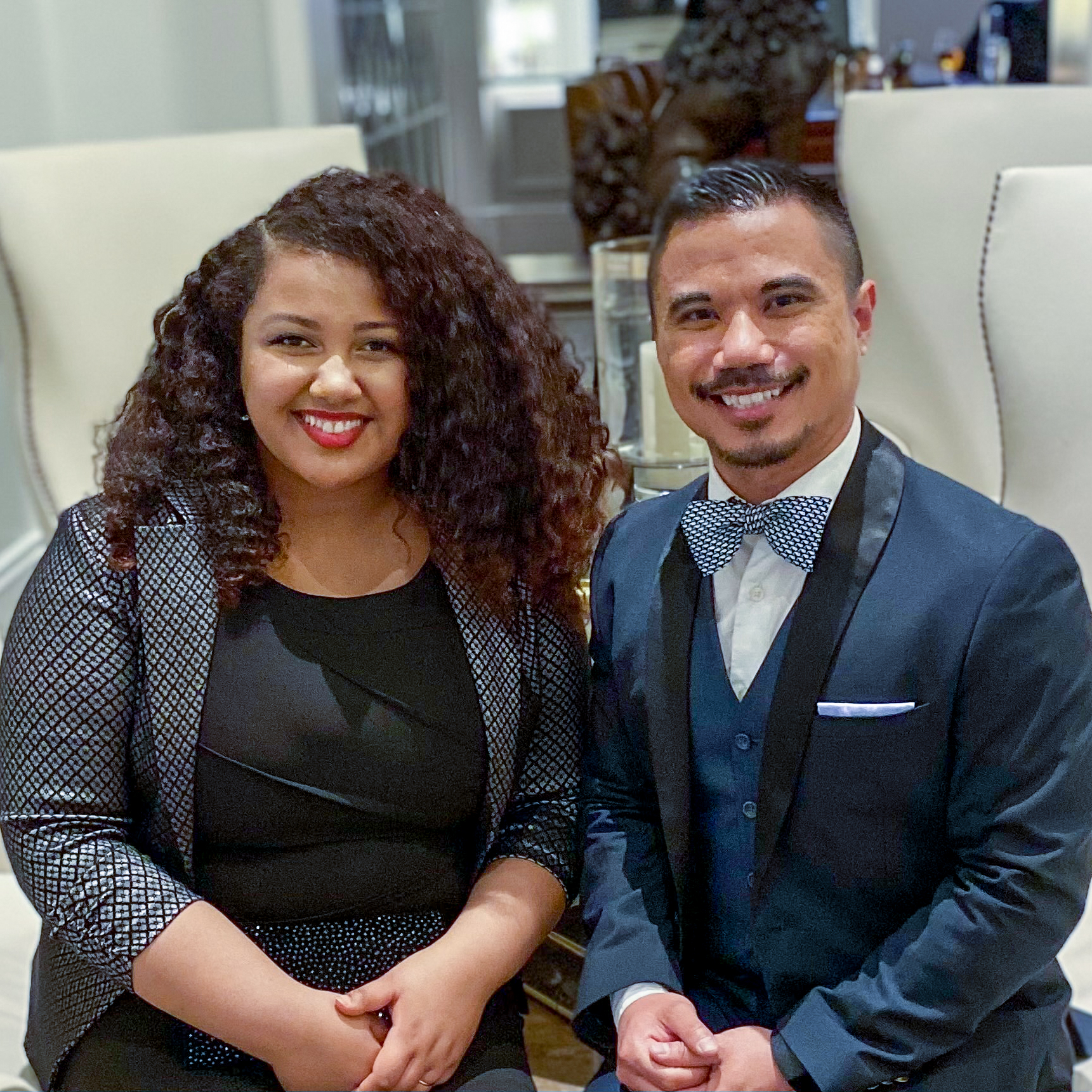 Co-founders of Bringing Law Into Science & Society (BLISS)
Co-founders of Bringing Law Into Science & Society (BLISS)
Armbien: Allaa and I met on the first day of Berkeley Law’s pre-orientation. We quickly recognized our shared background as scientists who come from immigrant families, and immediately began collaborating on our vision to combine science and law to uplift historically marginalized communities. During law school, we founded Bringing Law Into Science & Society (BLISS), established BLAST-Hawai’i, and pursued other projects through the Berkeley Technology Law Journal (BTLJ), the UN Human Rights Council, and Legal Clinics. And the results have been phenomenal!
Armbien: I have always wanted to be a scientist. I grew up by the sea in the Philippines, and being surrounded by fascinating sea creatures ignited in me a curiosity for how living things function.This led me to pursue my Ph.D. in molecular and cell biology here at UC Berkeley. My work focused on the molecular mechanisms of embryo development; my goal was to understand and prevent congenital disorders like muscular dystrophy. During graduate school, I discovered my life’s purpose: to advocate for equitable allocation of research funding and to ensure equitable access to science education. I was dissatisfied with how poorly research programs actually benefit communities of color, which is a direct outcome of science education and careers being so inaccessible. So I decided to go to law school and pursue science policy.
Allaa: My parents immigrated from Sudan, so I grew up always aware of health disparities. That led me to pursue my undergraduate degree in public health. After that I did a master’s in environmental health sciences at Johns Hopkins where I concentrated in toxicological sciences and epidemiology, which is the science of tracing diseases. I was awarded the Presidential Management Fellowship program STEM track where I worked as a health scientist on remediating Superfund sites at the Environmental Protection Agency. I was working on a really contentious Superfund site where we wanted to pursue a criminal investigation on the polluters’ environmental consultants’ scientific methods and we needed evidence that would stand up in court. That’s when I realized I needed to do more than just the science. I decided to go to law school so I could be a bigger part of the solution to these problems.
Allaa: We both have a really strong commitment to the communities we come from and recognize the differences in the resources that are allocated to different groups of people in different parts of the world. Our science backgrounds give us a unique perspective to be able to see that combining science and law can lead to innovation and equity. But there is an extreme disconnect between science and law.
Armbien: The whole way of thinking as a scientist vs. lawyer can be so opposite yet complementary. In law and policy we are encouraged to think broadly, whereas in science we are trained to think extremely narrowly. In addition, law is rooted in precedent, while science thrives at the cutting edge. The strength of law is that it doesn’t change very much; you do things that happened before. Science is the complete opposite. The scientific method is about disproving your hypothesis, and you adopt a new paradigm when evidence-based research calls for it. Law is based on judicial opinions. That’s a human being, totally subjective. Science is data-based, less open to interpretation. I think lawyers don’t know much about what scientists do and scientists don’t know much about what lawyers are doing either, but their work is critically interrelated and complementary.
Allaa: We founded Bringing Law Into Science & Society (BLISS) to be a bridge that allows scientists to learn about law and lawyers to learn about science and how they can benefit each other and collaborate for the good of society.
Armbien: Our goals for BLISS were to recruit people with technical backgrounds into law and to expose future lawyers to scientific topics. But more importantly, we wanted to create an environment where both sides can collaborate. Berkeley is the perfect place to do this because there are so many brilliant things happening all across the different departments on campus.
Armbien: Our first symposium was exactly that. We recruited scientists from STEM departments: molecular and cell biology, neuroscience, chemistry – we even had a nuclear engineer. We asked the scientists to give a talk about their work and its broader impact in the world. Then we paired up the scientists with law students to work together on hypotheticals. For the law students, we asked: how would you talk to your client about commercializing and patenting their thesis work? How would you help a scientist explain their work to a politician or judge who doesn’t have a science background? For the scientists, we asked: how would you describe to a courtroom why fingerprints or DNA evidence isn’t infallible? How would you advise a legislator to draft a statute is unambiguous and rooted in evidence-based research?
Allaa: Half of the attendees were law students and policy students, but the other half were scientists who were from outside the law school. It was a really special event because I think it allowed both the scientists and lawyers to understand each other’s work more. Now these law students understand why science policy has to be more dynamic than they are used to thinking about in the law and they are conversant in these important issues. And likewise, the science students can go into their professional lives understanding how difficult it can be to move the bar in the legal profession because of our system of precedence, and how important it is to have trained scientists involved in legislating and policymaking.
Allaa: In addition to connecting law students with other grad departments and other graduate students on campus, BLISS also does community outreach. For example, a group of us went to Contra Costa Community College to talk to STEM students about the intersection of law and science.
Armbien: I think most people see law and science as totally separate things. BLISS has given us the opportunity to go into different spaces and explain that not only are they synergistic, but they actually need each other. Law could use the rigor and objectivity that science has to offer, while science can really benefit from law’s broad perspective rooted in society and daily life. Science can be so far removed from what the people actually need and understand; law and policy bring that perspective. This is why together, science and law are such powerful tools for addressing inequities in society. So it’s been amazing to see the BLISS community grow not only within the law school, but also in the greater UC Berkeley and Bay Area community.
Rachel Terrell-Perica ’21 and Sophia Wallach ’22
Co-directors of Berkeley Law’s Alternative Dispute Resolution team
Part of Berkeley Law’s Advocacy Competitions Program, the Alternative Dispute Resolution (ADR) team sends students to mediation and negotiation competitions, two of the many different types of alternative dispute resolution processes, according to the ABA. Mediation can be thought of as a negotiation facilitated by a trusted neutral person. Mediation competitions include a mediator or “third-party neutral,” (either a student or professional mediator), and the two parties in dispute. Negotiation competitions do not include a third-party, only the two parties in dispute. While mediation involves a more formalized process, in both, the parties are negotiating against each other, which means that everyone on the ADR Team learns how to negotiate.
In fall 2020, Rachel, Sophia, and Karen Yang ’21 were the first team from Berkeley Law to compete on the international level at the Singapore International Mediation Competition, which virtually convened 48 teams hailing from 31 different countries. The Berkeley team competed in Singapore time (5:00 AM Pacific) for five days. They won all five rounds they competed in and took Gold in the Mediator and Mediation Advocate (negotiation) categories.
Here, Rachel and Sophia discuss the ADR team and the value it has contributed to their legal education:
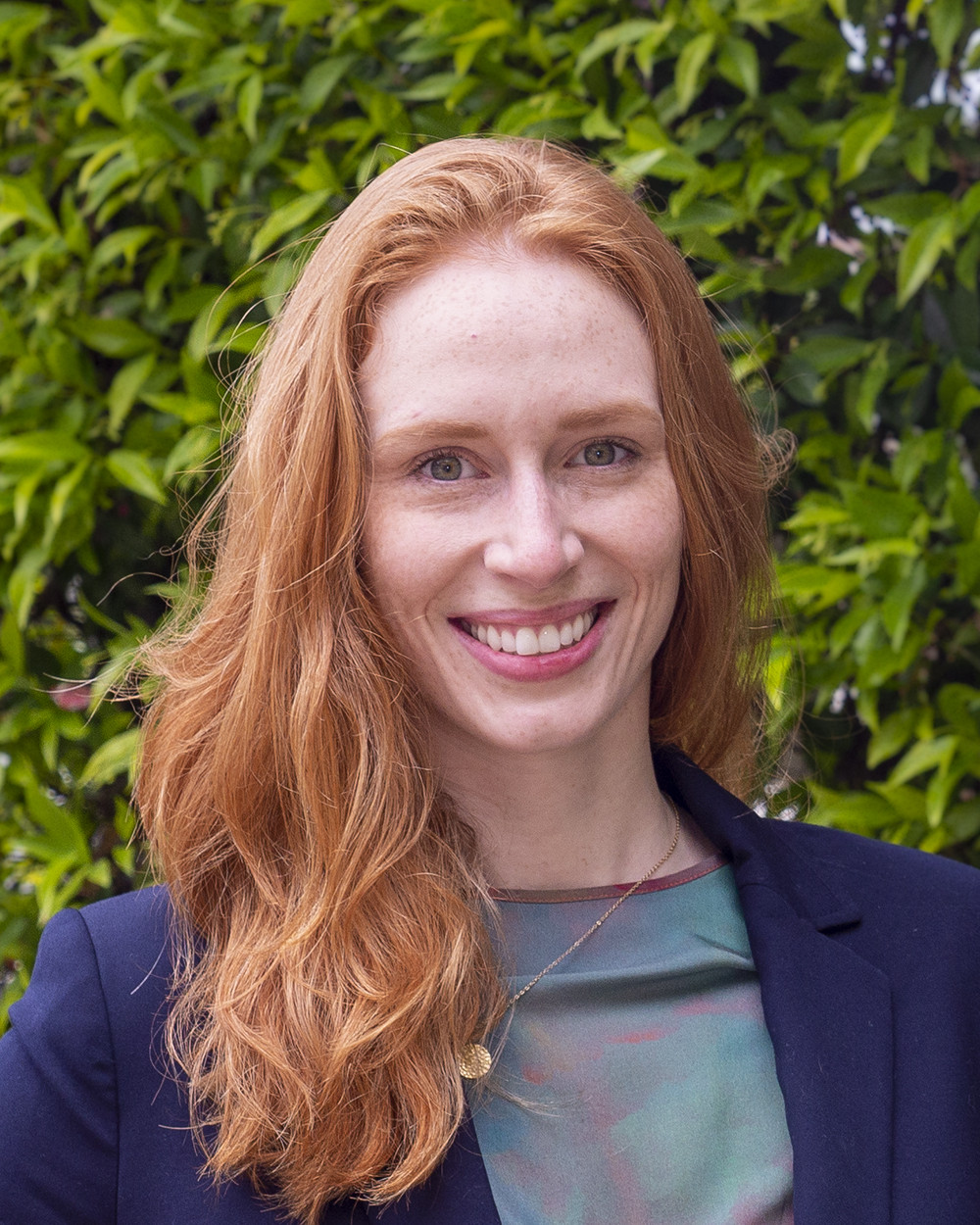 Sophia: When I was in college I did field work at a public defender’s office and in a family court. I kept seeing people get up in court and then the judge would give a decision. But I didn’t feel like most of these people were having their stories heard or having anything actually resolved in their lives. When I was getting ready to graduate I wasn’t sure I wanted to go to law school yet, but I wanted to do something immediately to help people work through issues without having to deal with the court system. So I got certified in mediation and was a volunteer mediator while I was working as a paralegal at the Federal Trade Commission. Then I received the Henry Luce fellowship and went to work for a year at the Singapore International Mediation Institute on dispute resolution and mediation issues. One of the reasons I chose Berkeley Law is the Alternative Dispute Resolution team.
Sophia: When I was in college I did field work at a public defender’s office and in a family court. I kept seeing people get up in court and then the judge would give a decision. But I didn’t feel like most of these people were having their stories heard or having anything actually resolved in their lives. When I was getting ready to graduate I wasn’t sure I wanted to go to law school yet, but I wanted to do something immediately to help people work through issues without having to deal with the court system. So I got certified in mediation and was a volunteer mediator while I was working as a paralegal at the Federal Trade Commission. Then I received the Henry Luce fellowship and went to work for a year at the Singapore International Mediation Institute on dispute resolution and mediation issues. One of the reasons I chose Berkeley Law is the Alternative Dispute Resolution team.
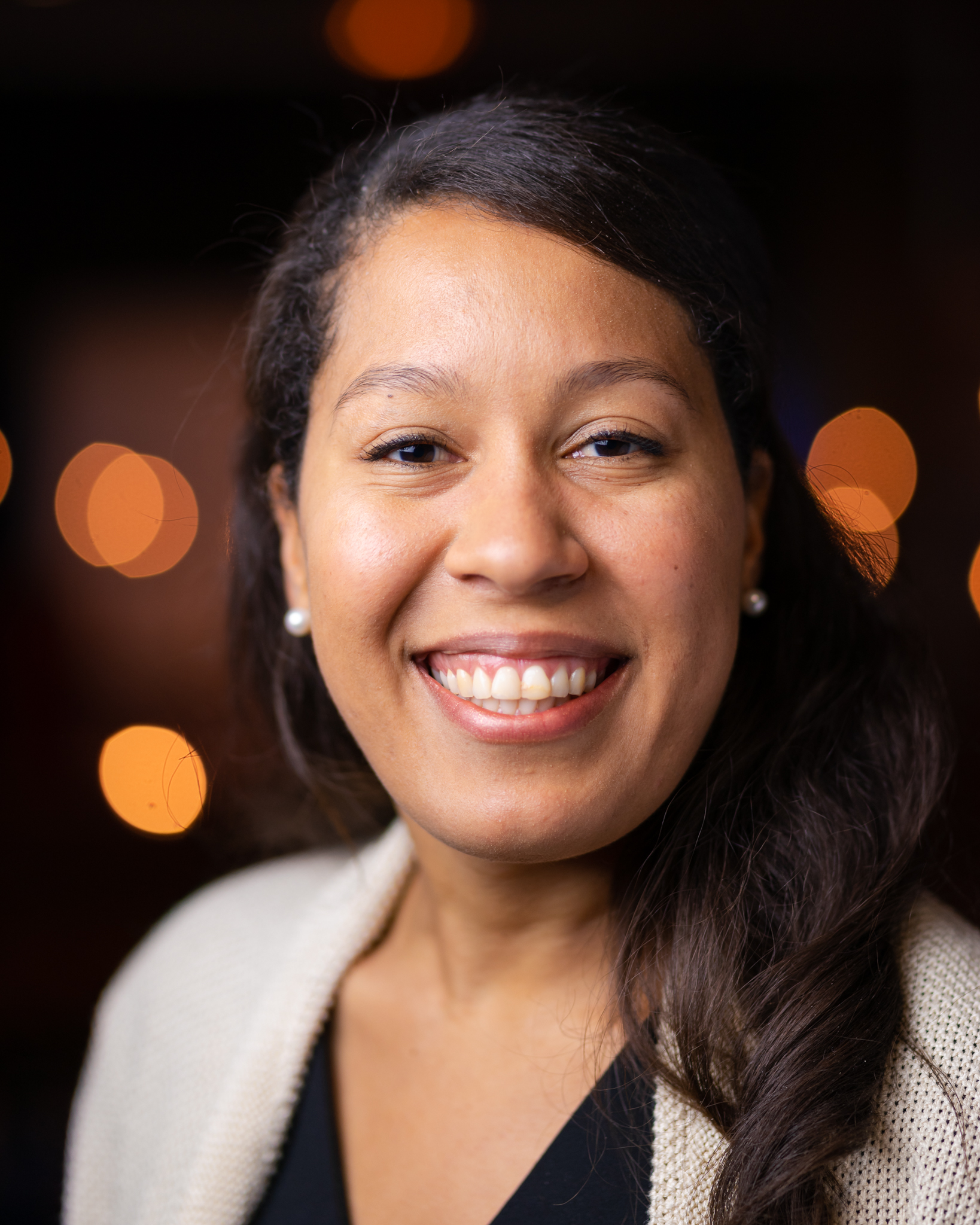 Rachel: I’m a first generation law student, so I didn’t know much about the legal world. Before law school, I was working for UN Women in Papua New Guinea on a woman-only bus system. It became very clear through my research that regardless of how many social interventions we were doing, that the law didn’t protect these women. That experience led me to work as a paralegal at Lieff Cabraser, then to law school. I wasn’t familiar with alternative dispute resolution when I started as a 1L. I actually missed the signups for tryouts and happened to stumble upon it in progress. I asked if I could still try out and they gave me the prompts and said, ‘If you can do this in the next 15 minutes, then sure.’ I prepped for the next 15 minutes, went into the negotiation, and just came alive.
Rachel: I’m a first generation law student, so I didn’t know much about the legal world. Before law school, I was working for UN Women in Papua New Guinea on a woman-only bus system. It became very clear through my research that regardless of how many social interventions we were doing, that the law didn’t protect these women. That experience led me to work as a paralegal at Lieff Cabraser, then to law school. I wasn’t familiar with alternative dispute resolution when I started as a 1L. I actually missed the signups for tryouts and happened to stumble upon it in progress. I asked if I could still try out and they gave me the prompts and said, ‘If you can do this in the next 15 minutes, then sure.’ I prepped for the next 15 minutes, went into the negotiation, and just came alive.
Sophia: Participating in the Alternative Dispute Resolution team and competitions is a unique opportunity for law students to practice advocating for their client’s interests while still problem-solving together with opposing counsel, something that nearly every lawyer will do on a daily basis. Strong writing is important, but lawyers also need to be good communicators.
Rachel: Absolutely. I think a lot of people experience anxiety around public speaking and oral advocacy. The ADR team is one of the few opportunities a 1L has to actually do the work of a lawyer in a safe, learning environment. You’ll practice with teammates and coaches and build your advocacy abilities. Before you know it you’ll be able to confidently engage every single person in any room, regardless of their background.
Rachel: I am planning to go into intellectual property and transactions are a very regular part of that practice area. As a result, I am more interested in the negotiation side of our team. It’s thrilling to go into a space and navigate the competing interests and figure out how to move forward. Sophia loves our mediation side. Together we make a great team.
Sophia: As co-directors this year, we’ve worked really hard to draw on our different skill sets in order to make the team as strong and diverse as possible. Clint Waasted, our head coach, has also been instrumental in developing the ADR program for the past 6 years here at Berkeley. ADR is different from other student organizations in that we bring people together from very different segments of the law school that would likely never connect otherwise to work together on a common cause.
Rachel: ADR is also a great experience because it exposes team members to a wide variety of legal practice areas and situations. For every competition, all ADR members participate in spars, which are basically practice mediations or negotiations to ensure those that will be competing are ready to excel at very high levels. For instance, we had a team competing in the National Sports Law Negotiation Competition earlier this year. So we all had to research how to negotiate a sports contract, learn about the professional organizations and the types of clauses that are normally included, etc.
Sophia: Mediation and negotiation are also increasingly essential to international legal practice. Most cross-border disputes are not going to be resolved in a courtroom, but through some sort of ADR process, often administered through an international body such as the WIPO. These tools are already shaping the way that lawyers interact with each other across different states, different borders, different nations. So it was exciting for us to be able to take Berkeley to an international ADR competition and win.
